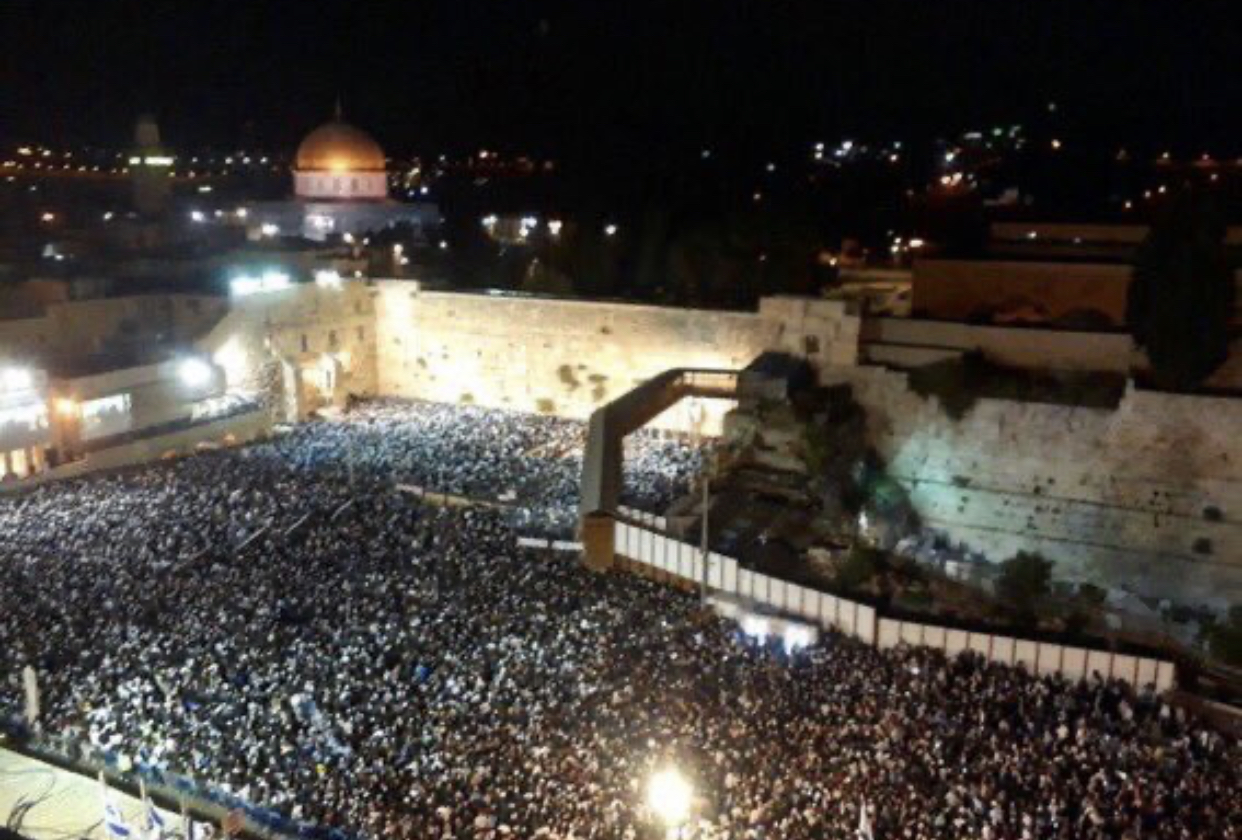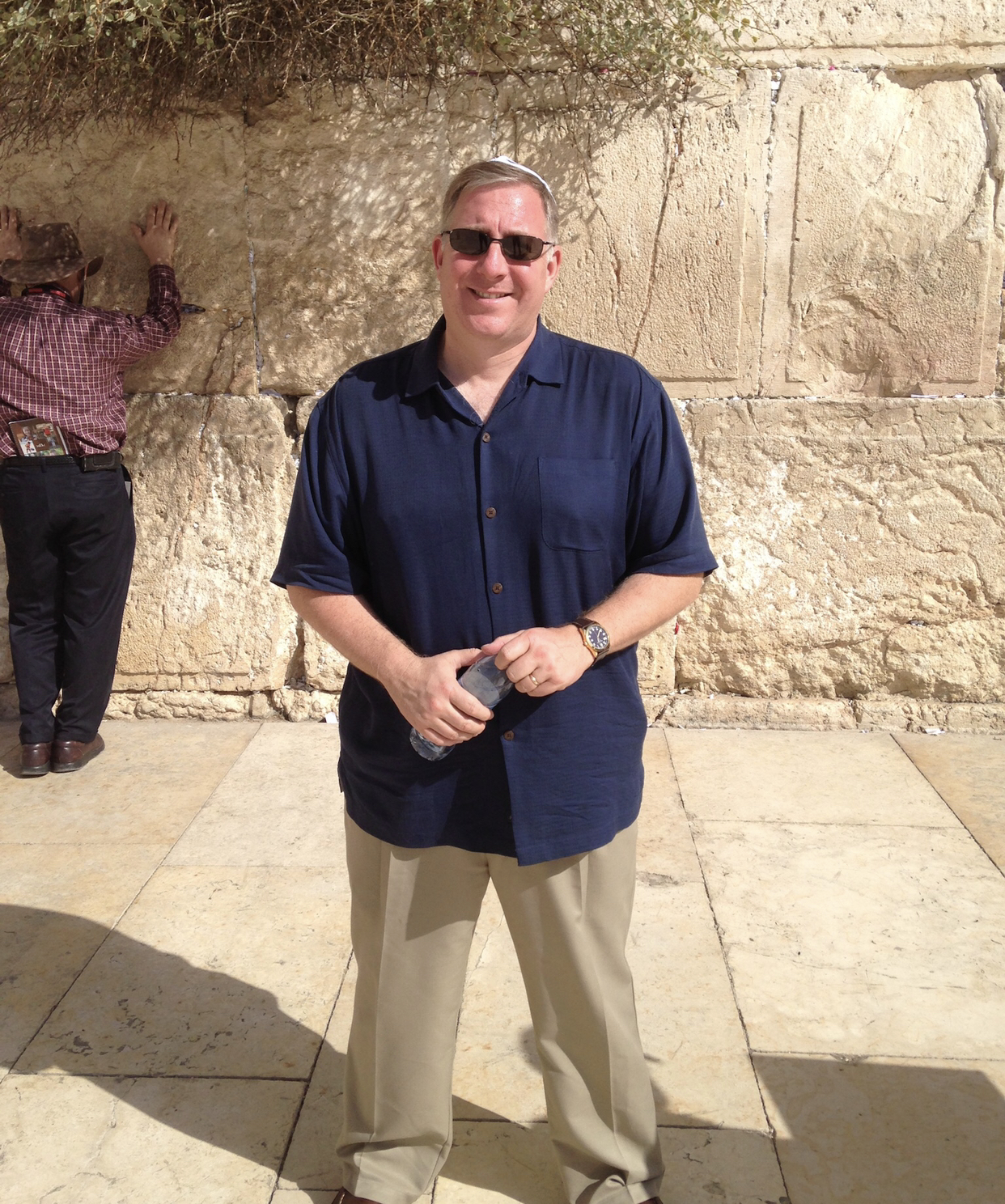
(Minneapolis, Minnesota) — Greetings from the beautiful city of Minneapolis. I am here speaking for several days at Bethlehem College and Seminary — founded by Dr. John Piper, the internationally-renowned Evangelical pastor and theologian — on what the Bible teaches about God’s great love for Jews and Arabs, and what the Church’s responsibilities are in loving them, as well.
It’s a particular interesting time of the year to discuss this topic because at sundown, some 17 million Jews — in Israel and around the world — will observe “Yom Kippur,” the “Day of Atonement.” This is a 24-hour period of complete fasting and prayer, in which Jews will ask God and others to forgive and cleanse them the sins they have committed in this previous year. They will also pray that their names will be written in the “Book of Life” so they can spend eternity with God in heaven, and not be sent to hell.
Yet there is a serious problem facing our community.
How exactly can Jewish people receive forgiveness from God without a Temple in Jerusalem? How can we receive atonement when there is no place where we can make the blood sacrifice of a perfect, unblemished lamb that God requires for atonement?
In the Torah — notably in Leviticus 17:11 — the Lord is crystal clear: “For the life of the flesh is in the blood, and I have given it to you on the altar to make atonement for your souls; for it is the blood by reason of the life that makes atonement.”
Elsewhere in Scripture, this point is made yet again: “without the shedding of blood there is no forgiveness.” (Hebrews 9:22)
Yet since 70 AD, Jews have had no Temple in Jerusalem. For almost 2,000 years we have thus had no place to make proper, acceptable sacrifices. Therefore, we haven’t been able to put our trust in the shedding of the blood of an innocent perfect lamb. That’s very serious. It means that according to the Law of Moses, we cannot receive atonement of our sins, even on the Day of Atonement.
Where, then, does that leave us?
The Hebrew prophets Jeremiah, Daniel and Isaiah point to the answer:
- The Hebrew prophet Jeremiah tells us that the Lord will one day introduce to the Jewish people a “new covenant” — very different from the covenant He made with Moses — and through this new covenant the Lord says, “I will forgive their iniquity, and I will remember their sin no more.” (see Jeremiah 31:31-34)
- The Hebrew prophet Daniel sheds light on how the new covenant will work. Through Daniel, the Lord tells us that the “Anointed One” — the Messiah — will come one day “to atone for wickedness, to bring in everlasting righteousness.” Daniel tells us that when the Messiah comes to bring atonement that He will be “cut off” — something terrible happens to him — and that all this will happen before the Temple and Jerusalem are destroyed. In other words, Daniel makes it clear that after the Messiah comes to bring atonement the Temple won’t be needed, but that the Lord won’t allow the Temple to be destroyed before the Messiah comes. The Romans, of course, destroyed the Second Temple and the City of Jerusalem in 70 AD. Thus, according to Daniel, the Messiah had to come before 70 AD. (see Daniel 9:21-27)
- The Hebrew prophet Isaiah then tells us something truly extraordinary: after the Anointed One comes, we Jewish people will look back at Him and say, “he (the Messiah) took up our pain and bore our suffering, yet we considered him punished by God, stricken by him, and afflicted. But he was pierced for our transgressions, he was crushed for our iniquities; the punishment that brought us peace was on Him, and by his wounds we are healed. We all, like sheep, have gone astray, each of us has turned to our own way; and the Lord has laid on him the iniquity of us all….he bore the sin of many, and made intercession for the transgressors.” (see Isaiah 53)

In 1973, after carefully studying the Hebrew prophets and the New Testament Gospel According to Luke, my Orthodox Jewish father came to the conclusion that Jesus of Nazareth is the Messiah for which we Jews have waited. My father realized that he could only receive forgiveness and atonement and have his name written in the Book of Life by placing his faith in the death and resurrection of Jesus, so that’s what he did. (To watch him briefly share his story, please click here.)
Several years later, I came to the same conclusion and placed my faith in Jesus the Messiah. (To watch me share my story, please click here.)
that said, don’t take our word for it. If you are Jewish, I hope you’ll look up these Scriptures, study them and consider them for yourself, and come to your own conclusion.
If you’re not Jewish, perhaps you’ll take a moment to share this with someone who is, as well as pray for all Jewish people to find the atonement that can only come through the new covenant.
Thanks so much.

